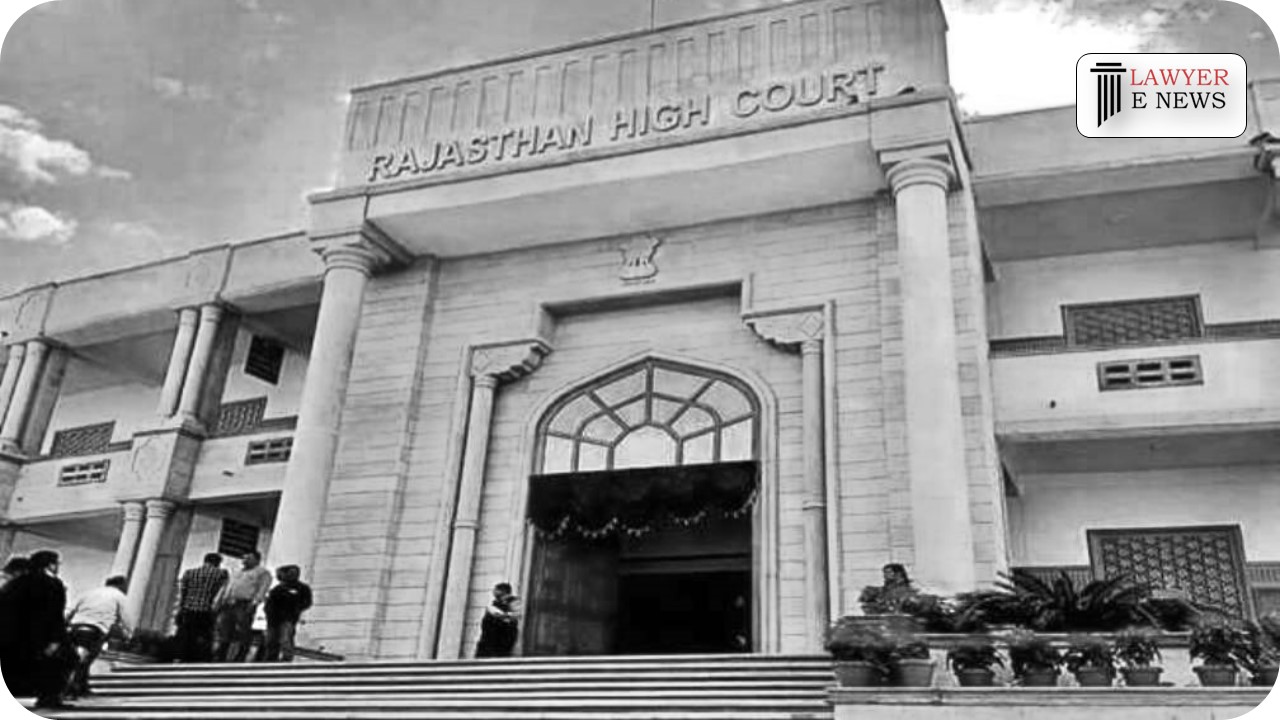-
by Admin
15 February 2026 5:35 AM



The Rajasthan High Court has dismissed a criminal revision petition challenging the acquittal of three accused and the extension of probationary benefits for their involvement in an assault case. The judgment, delivered by Justice Manoj Kumar Garg, underscores the court's reliance on consistent evidence evaluation and adherence to established legal principles concerning acquittals and probation.
The case originated from an incident on November 15, 2004, when the petitioner, Madan Lal, reported to the Bhawanda Police that several individuals, including Smt. Jani, Karma Ram, Smt. Santosh, Arjun Ram, and Baldev Ram, were assaulted by the accused—Shiv Narayan, Kailash alias Pappu Ram, and Shri Jheena Ram—while returning home from the fields. The police registered a case and eventually charged the accused under various sections of the Indian Penal Code (IPC), including Sections 341, 308/34, 325/34, 324/34, and 323/34.
Evaluation of Evidence: The trial court, after a thorough examination of the evidence, acquitted the accused of the more severe charges under Sections 308/34, 325, 324, and 323 IPC. However, it convicted them under Sections 325/34, 324/34, 323/34, and 341 IPC, subsequently extending the benefit of Section 4 of the Probation of Offenders Act. This decision was contested by the petitioner, arguing that ample evidence existed to convict the accused on the more severe charges.
Consistency and Contradictions in Witness Statements: Justice Garg emphasized the trial court's meticulous consideration of witness testimonies and documentary evidence. The court noted significant contradictions, omissions, and improvements in witness statements, which undermined the prosecution's case. The trial court's judgment, deemed detailed and reasoned, was upheld as it rightly acquitted the accused from the major charges while granting probation for lesser offenses.
Citing precedents from the Supreme Court, including 'Mrinal Das & others v. The State of Tripura' and 'State of Rajasthan v. Shera Ram alias Vishnu Dutta,' Justice Garg reiterated that interference with an acquittal is justified only under compelling and substantial reasons. The judgment underscored the principle that unless a trial court's decision is palpably erroneous or contrary to evidence, appellate courts should be reluctant to overturn acquittals.
Justice Garg remarked, “An order of acquittal is to be interfered with only when there are 'compelling and substantial reasons,' for doing so. If the order is 'clearly unreasonable,' it is a compelling reason for interference. When the trial court has ignored the evidence or misread the material evidence or has ignored material documents, the appellate court is competent to reverse the decision of the trial court depending on the materials placed.”
The dismissal of the revision petition by the Rajasthan High Court reinforces the judiciary's commitment to upholding procedural fairness and the integrity of acquittal judgments. This decision highlights the stringent standards required for overturning acquittals and the appropriate application of probationary benefits. The judgment serves as a significant precedent in the legal landscape, emphasizing the careful scrutiny required in criminal cases involving both acquittal and sentencing.
Date of Decision: May 29, 2024
